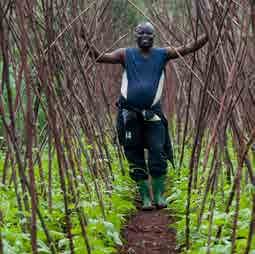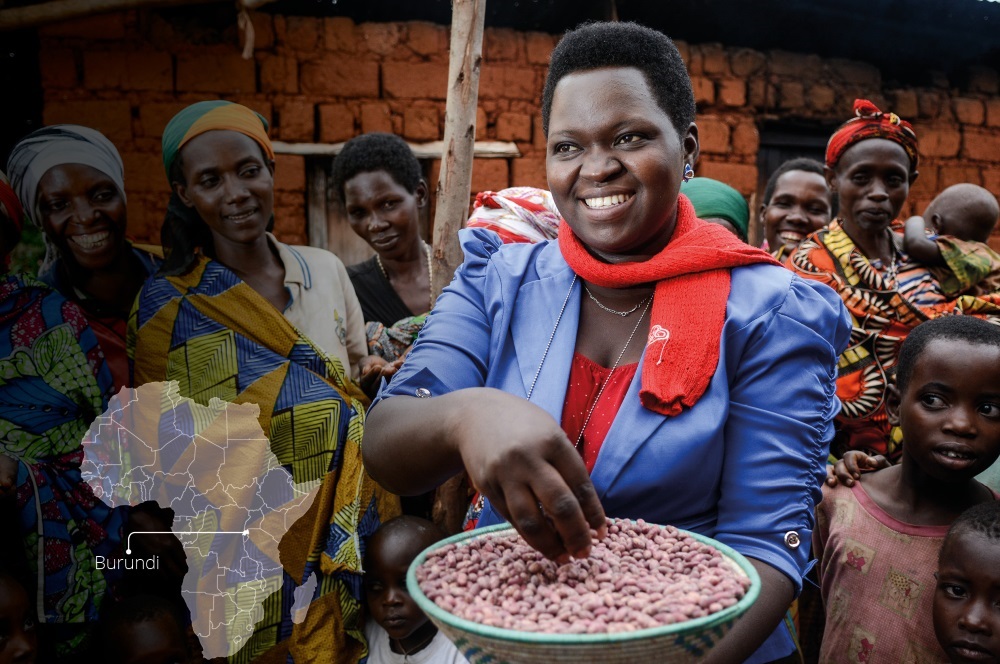In spite of its fragile state, Burundi saw much progress in nutrition in 2016. A strong partnership between the Ministry of Health (PRONIANUT) and the Ministry of Agriculture (ISABU) has led to 11 farmer cooperatives receiving training on how to produce nutritious bean flour for the market and household consumption. A community crèche has been set up for mothers, accepting 351 children two to five years old. Two community members take turns caring for the children while the other mothers are out farming. A bean-based porridge is prepared for the children at the crèche.
Christella Ndayishimiye started her business TOTOHARA in 2009 with just a few bags of bean flour for friends. Today, she now sells four metric tons of flour a month and is struggling to keep up with demand. Her new product add value to beans, fetching better prices for her and the farmers who supply her business, while also nurturing consumers.
“I saw that older and younger people needed more nutritious food. But the flour sold at the market was not of high quality or nutritious, so I started making it for my family, neighbors and friends. It was really popular and soon they convinced me to start making it for others as well.”
Christella got the idea for making the flour from a training session she attended, facilitated through PABRA. Glancing over at the neat rows of bean flour she has on the shelves of her shop, she reflects on her progress.
“Now I have bought a bicycle to transport the bean flour bags to small markets to supply different customers in Bujumbura. My family has relied on the income from this factory – now I can send my children to school and I have also adopted one child. My hope for TOTOHARA is to expand to other countries, so we can even export,”
– she said.
What’s next
- Development projects providing free composite flour for pregnant women are distorting the market and research is needed to train others about the benefits of partnering with private sector entrepreneurs like Christella Ndayishimiye.
- Further dialogue is needed among the agriculture and nutrition sectors to evaluate the sustainability of investments, to ensure a sustainable, food secure, future.

Richard Hatungimana works with PABRA through the Institut des Siences Agronomique du Burundi (ISABU), to multiply high quality beans for more farmers in Burundi. Since he started growing high-iron climbing beans in 2012 on just one hectare of land, he has bought another seven hectares. He used the income from the extra yield to reinvest around US$17,000 back into his farm in the
last five years. He now also has livestock and grows other crops on his farm.

